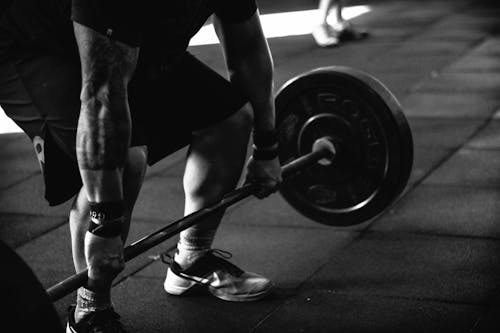There is conflicting information on the amount of weight that bodybuilders should lift
In this article, we will explore some of the available research related to the amount of weight that bodybuilders need to lift in order to build muscle. Hopefully, this would clarify some of your conflicts and answer questions, placing you on the road to happy and successful bodybuilding.
McMaster University researchers found that light weights are effective for building muscle and gaining strength
In order to test their theory that light weights were just as effective as heavy weights in building muscle and strength, the researchers studied healthy, young male volunteers.
Their aim was to measure how their leg muscles reacted to different forms of resistance training over a period of 10 weeks.
How the study was conducted
The participants were assigned to three different programs that required them to complete sets of repetition with assigned loads. There were typically eight to twelve repetitions per set at the highest weights and 25 to 30 repetitions at the lowest weights.
The three programs used in the combinations were:
one set at 80% of the maximum load.
three sets at 80% of the maximum.
three sets at 30% of the maximum.
The researchers first determined the maximum weight each subject could lift one time in a knee extension. Each subject was assigned to a different training program for each leg.

Results of the study
Results were confirmed after 10 weeks of training done three times per week. It was found that the heavy and light groups that lifted three sets saw significant gains in muscle volume. This was measured by MRI and there was no difference among the groups.
The group that trained for a single set showed approximately half the increase in muscle size seen in both the heavy and light groups.
The researchers concluded that lifting light light loads can induce muscle growth, provided it is lifted to the point where it is difficult to maintain good form.
COMMENT – I infer that the frequency of sets is important in muscle and strength building.
SOURCES
C. J. Mitchell, T. A. Churchward-Venne, D. D. W. West, N. A. Burd, L. Breen, S. K. Baker, S. M. Phillips. Resistance exercise load does not determine training-mediated hypertrophic gains in young men. Journal of Applied Physiology, 2012; DOI: 10.1152/japplphysiol.00307.201
McMaster University. (2012, April 30). Light weights are just as good for building muscle, getting stronger, researchers find. ScienceDaily. Retrieved March 25, 2019 from www.sciencedaily.com/releases/2012/04/120430105358.htm

